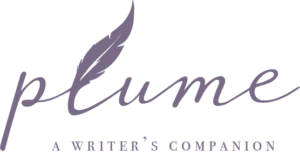My best friend Karin told me that when she sleeps it’s like going to the movies. She dreams complete stories. And she doesn’t always have the lead role! That surprised me because I’m always the star of my own dreams. If I remember them. Of course she’s a fiction writer and I write nonfiction—I’m working on a memoir. And even when I do write fiction, the lead character is usually like me (of course smarter, prettier, younger, and thinner). Like that mystery novel I’ve been tinkering with for a couple of years now. The main character, the “detective” is really a writer who finds a dead body at the bus stop a block from her house across from the grocery store. In Albuquerque. I live in Albuquerque about a block from a grocery store with a bus stop across the street….
Stephen King said he dreamed his novel Misery sleeping on a plane. (you gotta wonder who his seat mate was!). The opera Tristan and Isolde came to composer Richard Wagner in a dream. And a quick internet search of quotes about dreams turns up Vincent van Gogh: “I dream my painting and I paint my dream.”
Our brains work while we sleep, according to my friend and author Kat Duff. Her book, The Secret Life of Sleep, explores all things sleep, something she’s been fascinated by since she was a child. And whether we remember our dreams or not, she says we dream. “Anything we are puzzling about by day, our brains are working on it at night.”

Recognizing the importance of sleep seems to be a trend these days, but sleep is important to our health. Maybe most importantly our mental health. Lack of sleep can make you moody, irritable, forgetful, and unable to focus. During deep sleep, Kat says, we completely let go of our preconceptions. “It’s like our minds tap into a larger pool of information than when we are awake because when we are awake we have to deal with what is in front of us. Sleep allows us to sense what is in the air, not necessarily what is said or done.”
During dream sleep, our brains work with the emotional leftovers from the day and our brains make new new connections. Sleep nurtures our creativity and reveals things we can’t see when we’re awake.
Some people, like my friend author and creative liberation fighter Jill Badonsky, are not only able to remember dreams, she is able to guide her dreams by posing questions, a practice she’s used for years. “On a regular basis I receive images, answers, and ideas in the first few moments I wake up,” she says. “Our dreams are filled with imaginative scenarios that defy reality and take us to places beyond logic.”
Jill says sometimes when she asks questions she wakes up with answers to something else, but that’s a good result too. “The asking allows my brain to practice creative inquiry,” she says. Rather than focusing on worry and judgment, her practice of asking questions before going to sleep hones the skill of searching for answers. And if you want to practice creative inquiry, I highly recommend following her on Facebook–she asks fun and silly questions that will have you thinking creatively in no time.
If you’re in that state between sleep and awake, I call it floating but the technical term is hypnagogia, you’ll get lots of ideas. Jill recommends writing down those ideas–that liminal space where those ideas emerge is fleeting. “They may seem like they will be there later in the day but they evaporate if I don’t write them down or repeat them over and over to myself.”
For me dreaming has always been a challenge, or at least remembering them…. and that’s one of the reasons I enjoy working with a dreamboard and collaging my ideas–a tool I learned in a Jill Badonsky workshop. Working intuitively and with images seems to recreate in some way that liminal space, that dream state, and you have something to hang on your wall to remind you.

In September I hosted a Dreamboard Workshop in my home. My friend Cindy attended and asked if she could come early to do a sage ceremony. She saged each room, each attendee, and asked for the Creator to bring dreams into my home, into our hearts. I’m not especially religious but the workshop offered us some magical time together and weirdly I found myself remembering my dreams… and hope that continues. Dreaming is good for my concentration and my own creativity. And probably my mental health as well.
If you want to give it a try, I’ll be offering future Dreamboard workshops (next one is this Sunday January 13) here in Albuquerque. Or make your own time for dreaming–either asleep or with your own dreamboard. And use that as a tool for creative writing practice.
Featured Photo credit: Amy Treasure


Great article on the importance of sleep and creativity.
I need more sleep! (Great article, Jenn.)
Thanks, Julie xoxo